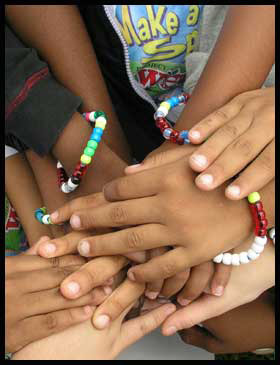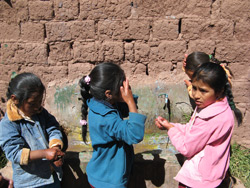
Values are the standards, principles and qualities by which humans make decisions or are influenced in their choice of actions. Values are considered desirable qualities such as honesty, integrity, tolerance, diligence, responsibility, compassion, altruism, justice and respect. Value-based Education therefore places emphasis on these qualities that human beings deem desirable and help people make informed decisions given choices and circumstances. Human Values-based Water, Sanitation and Hygiene Education allows individuals to gain awareness of their living environment and become better equipped to solve present and future water, sanitation and hygiene-related problems.
Through the approach of Human Values-based Water, Sanitation and Hygiene Education we can promote a better understanding and practice of these concepts as a key social, economic and environmental resource, as well as facilitating the emergence of a new water management ethic. Experience has shown that human values-based education can be used as a strategic entry point for supporting positive attitudinal changes amongst students, teachers and all those involved in the educational process. The implementation of Human Values-based Water, Sanitation and Hygiene Education will help achieve an all-around development of nations. Thus, education has a direct relationship with sustainable development.

The end goal of educational programs developed around sanitation and hygiene is behavior change within a population. The adoption of healthy habits is brought about through a change in thinking and a change in attitude around a particular topic. By instilling values such as love, respect and shared responsibility, we can change the way communities view hygiene practices, allowing them to take ownership of their health. By using hands-on instructional materials like Project WET activities, students will better understand the relationship between their behaviors and their health and natural resources.